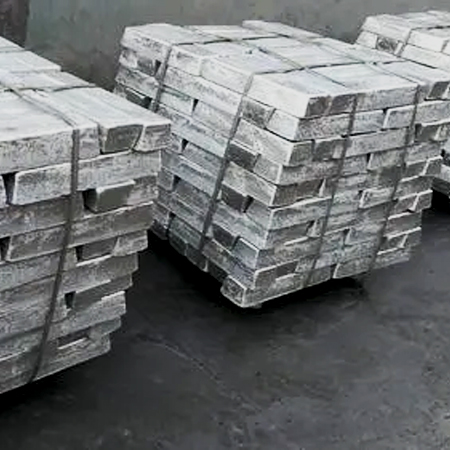Magnesium metal ingot is becoming increasingly pivotal in various industries due to their unique properties and wide-ranging applications. As the lightest structural metal available, magnesium’s combination of strength, lightweight, and versatility makes it invaluable in sectors ranging from automotive to aerospace, electronics, and beyond.

The density of Magnesium (Mg) is about two-thirds of aluminum, making it significantly lighter than many other metals while still providing substantial strength. Magnesium Ingot is the most common material in numerous manufacturing processes. In Aluminum casting, Mg and Silicon Metal are the most important alloying additives.
Production of Magnesium Metal Ingot
There are basically two processes to extract high purtiy Mg metal: the electrolytic process and the thermal reduction process. The electrolytic process involves the electrolysis of magnesium chloride, typically extracted from seawater or brine. The thermal reduction process, on the other hand, involves reducing magnesium oxide with silicon at high temperatures. Through any of above process, the magnesium will be cast into Mg ingots. These Mg ingots are mainly in 2 models: Magnesium 99.9 and Magnesium 99.95. Mg Ingots serve as the raw material for further processing and are crucial for various industries due to their ease of handling and transportation.
Applications of Magnesium Metal Ingot
Automotive Industry: The automotive sector is a significant consumer of magnesium ingot. The Mg metal’s lightweight nature helps to improve fuel efficiency and reduce emissions in vehicles. Magnesium alloy components such as engine blocks, transmission cases, and wheels.
Aerospace Industry: In aerospace, the need for lightweight metal yet strong materials is even more critical. Magnesium alloys are suitable in various aircraft components, including fuselages and wings, contributing to fuel efficiency and performance.
Electronics: Magnesium’s excellent electrical conductivity and shielding properties make it ideal for electronic devices. It is quite useful in the casings of laptops, mobile phones, and cameras, providing a robust and lightweight protective shell.
Medical Applications: Biocompatibility is another notable property of magnesium. It is applicable in medical devices and implants, such as orthopedic screws and biodegradable implants, which dissolve in the body over time, reducing the need for additional surgeries.
Construction: Magnesium alloys are also utilized in the construction industry for various structural applications. Their strength, light weight, and corrosion resistance make them suitable for roofing, cladding, and other structural components.
The future of magnesium metal ingot looks promising, with ongoing research focused on enhancing their properties and finding new applications. Innovations in alloy compositions, coating technologies, and manufacturing processes are likely to expand the use of magnesium across more industries. Furthermore, as the push for lighter, more fuel-efficient, and environmentally friendly materials continues, magnesium is potential to play a crucial role in the evolution of modern manufacturing.
